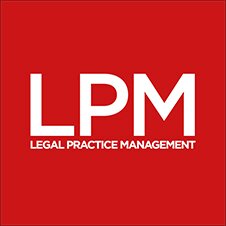Managing the future by Edward O’Rourke, Ashtons Legal
This blog post was also featured as a column in the December 2016 issue of Legal Practice Management magazine. To read the issue in full, download LPM magazine.
In his book, Strategy and the Fat Smoker, David Maister said: “The ways of thinking and behaving that help lawyers excel in their profession may be the very things that limit what they can achieve as firms. Management challenges occur not in spite of lawyers’ intelligence and training, but because of them.”
Among the ways that legal training and practice keep lawyers from effectively functioning in groups are: problems with trust, difficulties with ideology, values, and principles, professional detachment, and unusual approaches to decision making.
If firms cannot overcome these inherent tendencies, they may not be able to deliver on the goals and strategies they say they want to pursue.
Maister’s book was published in 2008, less than a decade ago, but in many ways that was a different era in terms of UK law firm management. The global economic crash was yet to happen, the Legal Services Act had not taken hold (ABSs weren’t yet a reality) and the disruptive influence of IT was only just emerging in other walks of life.
The argument ran that law firms had no incentive to ensure their businesses were managed better. As Maister put it: “If lawyers deal with each other so poorly, why do they do so well financially? My answer is only partly humorous: the greatest advantage lawyers have is that they compete only with other lawyers. If everyone else does things equally poorly, and clients and recruits find little variation between firms, even the most egregious behaviour will not lead to a competitive disadvantage.
“Many law firms have discovered that you can truly make a lot of money if you work everybody very, very hard and really slash your costs and don’t care about how people – partners, associates, or staff – feel about their work lives.”
How times have changed. We now have many law firms run by non-lawyers. Titles such as CEO, COO, CIO or similar have cropped up among the monikers heading legal practices. The wake-up call provided by the economic, regulatory and technological environment of the past few years has stimulated dramatic shifts in approach.
The threat of the ABS (over 550 registered by the SRA alone and over 1,000 in total) has allowed new models of operation to appear – we no longer compete with other lawyers operating the same way. Technology that has transformed other industries is beginning to appear in the legal world. Clients are better informed and have easier access to information.
The world is changing at an accelerating pace and professional management is one tool to help law firms cope with the change. But structures are easier to change than attitudes and mind sets. It is one thing to appoint a CEO but the challenge comes in enabling him or her to manage efficiently and effectively rather than by lengthy consultation and on a consensus basis. In reality there are currently law firms all along the spectrum, from a traditional law firm management model to a corporate and professional management team with autonomy and everything in between. It will be fascinating in a few years’ time to see how much further the landscape has evolved and whether correlation can be made between structure and success.



